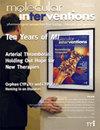Cosmopolitan Repair: Reclaiming and Restoring Cultural Heritage in Postcolonial Nigeria
引用次数: 0
Abstract
The retention of sacred artifacts against the will of source countries, particularly ex-colonies, represents a form of social and cultural control that facilitates and exacerbates political and economic inequities between nations. Since independence, generations of Nigerian artists have engaged in various forms of recuperation of pre-colonial aesthetics through the adoption of postcolonial modernist visual tactics to negotiate a sense of self-determination and to recover an autonomous postcolonial national identity. Contemporary artists in Nigeria, particularly in Benin and throughout the diaspora have employed a range of aesthetic political practices to disrupt the legacies of colonialism still pervasive within their industries and communities. Through the creation of subversive artwork which attempts to think beyond the framework of western benevolence embedded in the project of restitution, some have made efforts to resist hegemonic influences within the global contemporary art world. The tactics of decolonial resistance that some Nigerian and diasporic artists have employed suggest a strategic redeployment of an aesthetic tradition that simultaneously advocates for the reclaiming of a black radical indigenous history and full realization of Nigerian cultural autonomous potentialities, while also envisioning a future situated within a global cosmopolitan framework – what I refer to as cosmopolitan repair. Such forms of cultural production constitute a critical component of the recent resurgence of decolonial activism that has swept the global art world which, at its core, poses a resistance to extractive capitalism in the Global South.世界性修复:后殖民时代尼日利亚文化遗产的回收和修复
不顾来源国,特别是前殖民地的意愿保留圣物,是一种社会和文化控制形式,促进和加剧了国家之间的政治和经济不平等。自独立以来,一代又一代的尼日利亚艺术家通过采用后殖民现代主义视觉策略,参与了各种形式的前殖民美学的恢复,以协商一种自决感,并恢复自主的后殖民国家身份。尼日利亚的当代艺术家,特别是贝宁的当代艺术家和散居海外的当代艺术家,采用了一系列的美学政治实践来打破殖民主义在他们的行业和社区中仍然普遍存在的遗产。一些人通过创作颠覆性的艺术作品,试图超越西方仁慈的框架,在修复项目中进行思考,努力抵制全球当代艺术界的霸权影响。一些尼日利亚和散居艺术家所采用的非殖民化抵抗策略,表明了一种美学传统的战略重新部署,这种传统同时提倡对黑人激进土著历史的回收和对尼日利亚文化自主潜力的充分实现,同时也设想了一个位于全球世界主义框架内的未来——我称之为世界主义修复。这种形式的文化生产构成了最近席卷全球艺术界的非殖民化行动主义复兴的关键组成部分,其核心是对全球南方掠夺性资本主义的抵制。
本文章由计算机程序翻译,如有差异,请以英文原文为准。
求助全文
约1分钟内获得全文
求助全文

 求助内容:
求助内容: 应助结果提醒方式:
应助结果提醒方式:


